

Putin urges Wagner members Monday to sign contract with Russia's defense ministry, return home or go to Belarus.
The criminal case against Prigozhin has not been closed, Sputnik reported, citing a source in the Russian Prosecutor General's Office.
Wagner mercenary group halts advance on Moscow Saturday in a deal brokered by Belarusian president.
Wagner forces had reached the city of Lipetsk, some 450 kilometers south of Moscow.
The Kremlin dismissed a US media report on Wednesday suggesting a top Russian general had known in advance about an aborted mutiny last week by the Wagner private military group, calling it "speculation and gossip".
Kremlin spokesman Dmitry Peskov was responding to a question regarding a New York Times report citing United States officials as saying that General Sergey Surovikin, deputy commander of Russia's military operations in Ukraine, had advance direct knowledge of the planned mutiny.
"There will now be a lot of speculation, gossip and so on around these events," Peskov said. "I think this is one such example."
Russia is unified around President Vladimir Putin, he said. "The army, the people, everyone was next to the president," Peskov said.
Also on Wednesday, Putin paid a visit to the southern Dagestan region for the Islamic holiday of Eid al-Adha, and was greeted by supporters in the streets of Derbent city. Putin said he "did not doubt" the support of Russian citizens during the Wagner rebellion, according to a Kremlin statement.
Surovikin is a respected general who helped shore up defenses across battle lines after Ukraine's counteroffensive last year, The New York Times quoted US officials as saying. Surovikin was replaced in January as commander, but retained influence and remained popular among the troops, the report said.
Surovikin, who has not been seen in public since Saturday when he made an appeal for the mutiny to be called off, has often been praised by Wagner head Yevgeny Prigozhin, Reuters reported.
Russian authorities confirmed on Wednesday that the crews of two aircraft were killed during Wagner's operation on Saturday.
EU summit scheduled
On Thursday, European Union leaders were scheduled to gather in Brussels to debate the repercussions of the aborted mutiny in Russia and pledge further support for Ukraine.
At the summit, the leaders would also talk with NATO chief Jens Stoltenberg and discuss what role the EU could play in Western commitments to bolster Ukraine's security.
A draft of the summit conclusion said EU countries were ready to contribute to future security commitments to Ukraine, to "help Ukraine defend itself in the long term", Reuters reported.
Countries, including the US, Britain, France and Germany, are discussing such measures ahead of a NATO summit next month in Vilnius, Lithuania, where Ukraine will be a major theme.
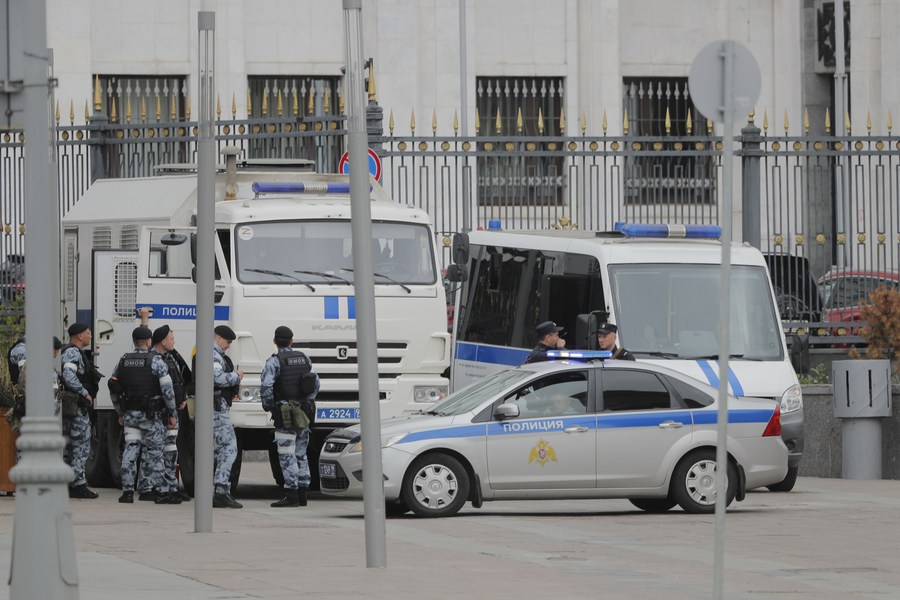
Belarusian President Alexander Lukashenko confirmed on Tuesday that Yevgeny Prigozhin, head of the Wagner private military group, had arrived in Minsk, as NATO warned it was ready to defend against "Moscow or Minsk".
A satellite image from imaging company BlackSky showed two planes linked to Prigozhin at an air base outside the Belarusian capital in the morning.
"I see that Prigozhin is already flying on a plane. Yes, indeed, he is in Belarus today," Lukashenko told state media, adding that Prigozhin and some of his troops were welcome to stay "for some time" at their own expense.
Prigozhin hasn't been seen in any videos or photos since he left the Rostov-on-Don military headquarters in southern Russia on Saturday.
Moscow said preparations were underway for Wagner's troops, which numbered 25,000, according to Prigozhin, to hand over their heavy weapons to Russia's military. Prigozhin had said such moves were planned ahead of a July 1 deadline for his fighters to sign contracts — which he opposed — to serve under Russia's military command.
The Belarusian leader said he had persuaded Russian President Vladimir Putin not to "destroy" the Wagner group and Prigozhin.
"The most dangerous thing, as I understand it, is not what the situation was, but how it could develop and its consequences," said Lukashenko on the mediation that led to Prigozhin and Wagner fighters ending their march toward Moscow.
"I also realized there was a harsh decision taken — to destroy. I suggested to Putin not to hurry. Let's talk with Prigozhin, with his commanders," he added.
The Kremlin has credited Lukashenko with helping de-escalate the situation. Lukashenko was able to draw on a personal relationship with Prigozhin to reach the deal, which would also see Wagner troops and equipment absorbed by the Russian military, said Kremlin spokesman Dmitry Peskov.
In a further show of a return to normalcy, Russian media showed Defense Minister Sergei Shoigu in uniform greeting visiting Cuban Defense Minister Alvaro Lopez Miera in an elaborate ceremony on Tuesday. Shoigu also delivered his first on-camera remarks since the Wagner fighters' attempted mutiny.
Meanwhile, NATO Secretary-General Jens Stoltenberg said a clear message has been sent to Moscow and Minsk that "NATO is there to protect every ally, every inch of NATO territory".
At a joint news conference at The Hague alongside the leaders of seven NATO countries, Stoltenberg said the events relating to the Wagner rebellion were "internal Russian matters".
He told reporters the West must not underestimate Russia, despite the chaos at the weekend.
"It's too early to make any final judgment about the consequences of the fact that Prigozhin has moved to Belarus and most likely also some of his forces will also be located to Belarus," he said.
In Washington, United States Secretary of State Antony Blinken announced on Tuesday a new $500 million package of arms to Ukraine, including armored vehicles, precision munitions and mine-clearing equipment.
The Treasury Department also imposed sanctions on four companies from Russia, the United Arab Emirates and the Central African Republic involved in "gold dealing", and one person they say made "weapons deals "tied to the Wagner group.
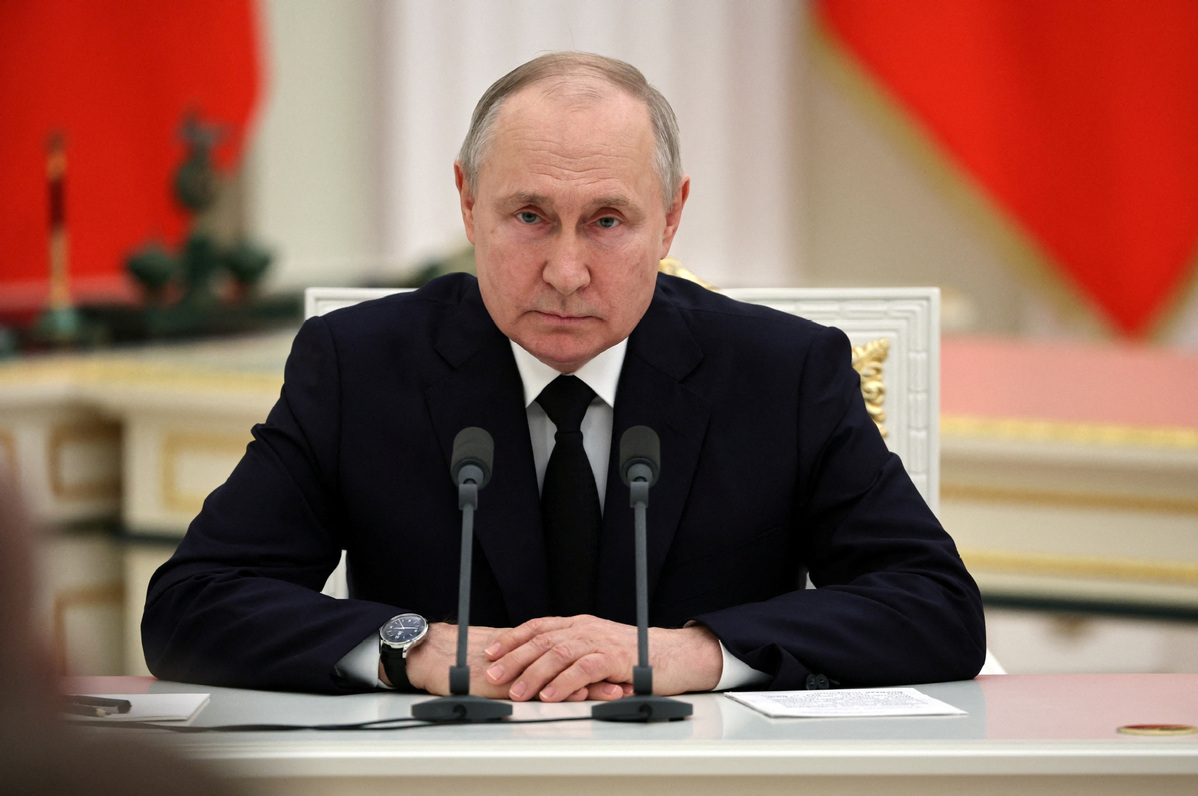
Russian President Vladimir Putin, in his first national address since Yevgeny Prigozhin, head of the Wagner private military group, launched a brief insurrection on Saturday, thanked Russians for their unity over the incident.
Putin emphasized in the address on Monday evening that prompt measures had been taken from the very beginning to avoid bloodshed. He lauded the courage of military personnel and law enforcement officers and vowed to fulfill his promise to members of the Wagner group that they could go to Belarus, join Russia's military or return to their families.
"Time was needed, among other things, to give those who had made a mistake a chance to come to their senses, to realize that their actions were firmly rejected by society, and that the adventure in which they had been involved had tragic and destructive consequences for Russia and for our state," Reuters quoted Putin as saying.
On Tuesday, the Russian Federal Security Service said it had closed a criminal investigation into the armed rebellion, with no charges against Prigozhin or any of the other participants.
The security agency, explaining its decision in a statement, said that participants in the armed insurrection had "ceased their actions directly aimed at committing the crime".
Putin also expressed gratitude to military personnel, law enforcement and intelligence officers, and the hero pilots who had stood up to stop the mutineers.
He told troops gathered at the Kremlin on Tuesday that they have effectively "stopped civil war", and a minute of silence was later held for the pilots killed during the revolt.
Noting that the patriotic feelings of Russians and consolidation of the entire society were crucial in ending the mutiny, Putin said that "this civic solidarity made it clear that any blackmail and attempts to create internal turmoil were bound to fail".
He also thanked Belarusian President Alexander Lukashenko for his mediation role in resolving the attempted mutiny.
Wagner fighters took control on Saturday of the southern city of Rostov-on-Don and Russia's southern military headquarters, then drove an armed convoy to within 200 kilometers of Moscow before aborting their march.
Putin said he also appreciated the Wagner fighters "who made the only right choice and refused to start fratricidal bloodshed".
According to state news agency RIA Novosti, Putin later held a meeting with heads of security agencies on Monday night. Kremlin spokesman Dmitry Peskov said the president met with top security and military officials, including Defense Minister Sergei Shoigu.
In Washington, US President Joe Biden sought on Monday to distance the United States from the attempted rebellion, saying in his first public remarks since the episode that the West had nothing to do with it.
Speaking from the White House, Biden suggested that it was too early to say how the situation would unfold going forward. He also said he might speak again with Ukrainian President Volodymyr Zelensky to coordinate their response after conferring in a phone call on Sunday.
Over the weekend, Biden had remained silent on the incident. He consulted with European allies by telephone on Saturday before traveling to the Camp David presidential retreat with Jake Sullivan, his national security adviser.
Also on Monday, Putin signed a decree that extends until the end of this year the Russian government's countermeasures against a price cap on Russian oil and oil products imposed by Western countries.
renqi@chinadaily.com.cn
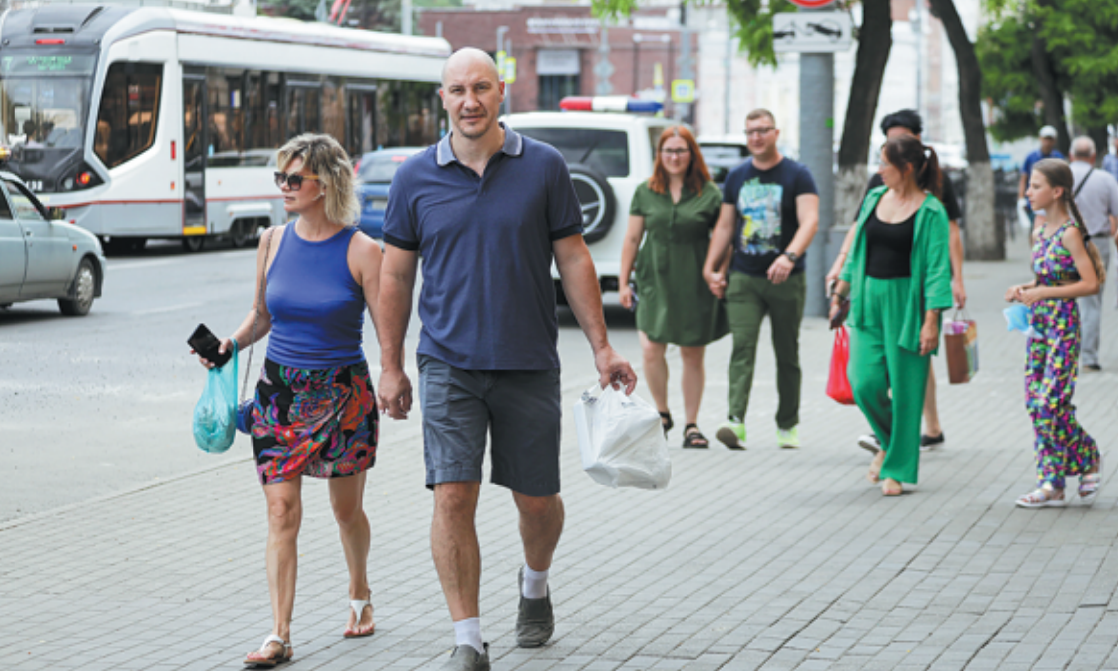
Russian Defense Minister Sergei Shoigu has appeared on state media inspecting Russian troops in Ukraine, making his first public appearance following an armed rebellion by the Wagner private military group.
Shoigu visited a Russian command bunker and flew in a helicopter to inspect troops battling a Ukrainian counteroffensive, Tass, the Russian state news agency, reported on Monday. The minister reportedly listened to reports from Colonel General Yevgeny Nikiforov, the troops' commander, about the current situation on the front lines.
The exact time and location of the visit were not disclosed by the Russian Defence Ministry or state media.
Footage shared by the ministry showed Shoigu in uniform on board a helicopter. It then showed him entering a military command post where he could be seen chairing a meeting and inspecting maps.
The ministry said in a statement that Shoigu had visited a "forward command post" in Ukraine, where he noted the Russian army's "great efficiency in the detection and destruction" of Ukrainian weapons systems and soldiers.
The visit came after Wagner chief Yevgeny Prigozhin launched a brief insurrection on Saturday that ended abruptly after a deal was struck for him to leave for Belarus. Wagner fighters returned to their bases on Sunday after Russian President Vladimir Putin agreed to drop treason charges against Prigozhin.
Prigozhin said in an audio statement released on Monday that the march on Moscow was a demonstration of their protest and not intended to overturn power in the country. He added that his column had turned back "to avoid bloodshed".
In Moscow, a China Daily reporter observed Red Square blocked off on Sunday. Metal partitions were seen blocking access to the city center and a few security officers were present.
Moscow Mayor Sergei Sobyanin proclaimed on Monday that the situation in the capital was "stable", saying that all security restrictions imposed in Moscow had been lifted. He also thanked Muscovites for their "calm and understanding", adding that high school graduations will be held on July 1 after many events were canceled on Saturday.
As events unfolded over the weekend, Moscow authorities declared Monday a nonwork day for residents, with the exception of some essential workers.
Russia's State Duma, the lower house of parliament, is working on a law to regulate Wagner amid speculation about the mercenary group's future, according to Andrey Kartapolov, head of the Duma's Defense Committee.
"The fate of Wagner is not determined, but it is not necessary to ban it, since this is a combat-ready unit, and there are questions for its leadership, and not for the fighters," Kartapolov told the Russian business newspaper Vedomosti on Sunday.
Kremlin spokesman Dmitry Peskov said that an agreement had been reached on the return of the Wagner fighters to their locations. He added that those who wish to do so and who did not take part in the march "will subsequently sign contracts with the Ministry of Defense".
Investors are also questioning whether the turmoil in Moscow will disrupt global energy supplies, with early gains in oil prices evaporating on Monday.
US West Texas Intermediate crude briefly climbed 1.3 percent during Asian trading hours, but it later gave up those gains. Brent crude, the international bench mark, inched up 0.1 percent, trimming earlier advances.
Although the immediate risk of bloodshed appears to have dissipated, much remains uncertain. United States President Joe Biden spoke by phone with his Ukrainian counterpart Volodymyr Zelensky on Sunday, discussing Washington's support for Kyiv as the latter continues its counteroffensive against Russia.
It was not yet clear what the fissures opened by the 24-hour rebellion will mean for the conflict in Ukraine.
renqi@chinadaily.com.cn
MOSCOW - The legal regime of the counter-terrorist operation against the Wagner private military group has been canceled in Moscow and the Moscow region due to the normalization of the current situation, said the Russian government.
"Due to the absence of threats to life, health, property and other legally protected interests of people, the head of the counter-terrorist operation, the head of the Federal Security Service of Russia for the city of Moscow and the Moscow region decided to cancel the counter-terrorist operation legal regime in Moscow and the Moscow region from 09:00 a.m. local time (1200 GMT) on Monday," said Russia's National Anti-terrorism Committee in a statement.
Meanwhile, the temporary restrictions in Moscow and the Moscow region have also been lifted, said the statement, adding that the situation in the Moscow region remains stable currently.
Russia's National Anti-terrorism Committee announced on Saturday that a counter-terrorist operation regime was introduced in Moscow city, the Moscow region and the Voronezh region to prevent possible terrorist acts after the Wagner private military group was accused of trying to organize an armed rebellion.
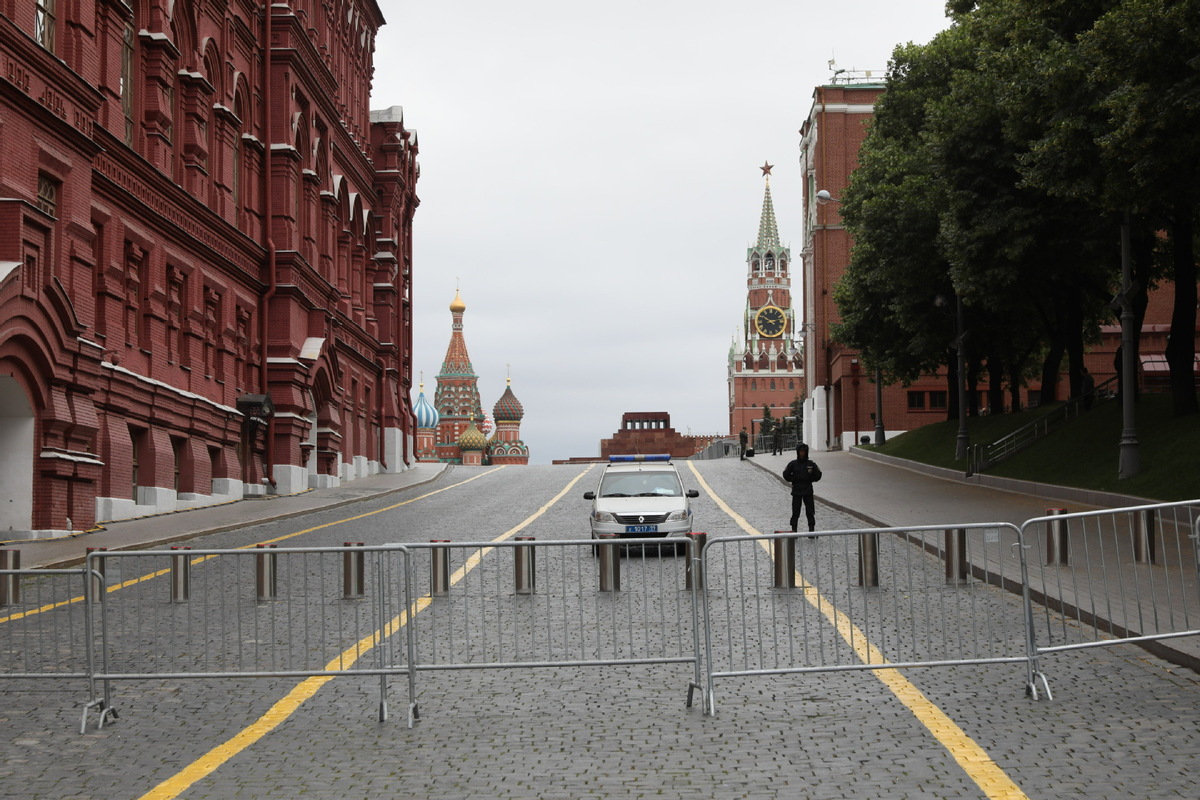
Editor's note: Moscow and Yevgeny Prigozhin, head of the Wagner group, arrived at a compromise thanks to mediation by Belarusian President Alexander Lukashenko late on Saturday. Two experts talk to China Daily's Zhang Xi and Pan Yixuan about the impact of the incident.
Peaceful resolution good for all
The Russia-Ukraine crisis had reached a stalemate when the Wagner private military group suddenly incited an armed operation.
Against the backdrop of the escalating conflict between Russia and Ukraine, the Wagner group rose, with the tacit approval of high-level Russian officials, to achieve remarkable results in the Russia-Ukraine conflict. However, intense conflicts between the Wagner group and high-level officials of the Russian Defense Ministry triggered the mutiny.
Fortunately, the crisis has been resolved for now, following the mediation by Belarusian President Alexander Lukashenko.
This event fully demonstrates Russia's national character and modern-day power politics. The resolution of this crisis is critical to Russia's overall national interests and conforms to the common wishes of the ordinary people. Its safe resolution can strengthen the Russian government's consistent foreign policy.
Although the crisis has been resolved on the surface, the mutiny by the Wagner group reveals that social, economic and political problems have been rising since the Russia-Ukraine conflict.
Xu Wenhong is a researcher on Russia studies, Chinese Academy of Social Sciences
Incident alarming
Within a day, the Wagner private military group staged an armed action against Moscow and arrived at a compromise following the mediation of Belarusian President Alexander Lukashenko, which was a very sobering incident.
The Wagner group's coming into existence and growing into a strong force in Russia is something out of the ordinary. It is akin to an old Chinese saying: to use a dog's tail to pretend it is a mink's when the latter is insufficient. Maybe the incorporation of mercenaries into the Russian army was the best option for both the Russian government and the Wagner group, but it reminded of the Chinese saying about feeding a tiger and then inviting trouble.
The conflict between mercenaries and the Russian army is only the tip of the iceberg about the inherent contradictions in Russian society.
The success of Lukashenko's mediation is of utmost importance, as Wagner's group may not see how risky the military action could have been. It may not have amounted to a civil war as some media outlets have suggested, but it undoubtedly rings an alarm bell for Russia.
Yu Sui is a professor at the China Center for Contemporary World Studies.
The views don't necessarily reflect those of China Daily.
If you have a specific expertise, or would like to share your thought about our stories, then send us your writings at opinion@chinadaily.com.cn, and comment@chinadaily.com.cn.

China expressed its support for Russia's efforts in maintaining its stability, a Foreign Ministry spokesperson said on Sunday, a day after a rebellion by a Russian mercenary force was resolved peacefully.
A compromise was reached on late Saturday between Moscow and Yevgeny Prigozhin, head of the Wagner private military group, through the mediation of Belarusian President Alexander Lukashenko.
In response to the latest situation in Russia, the Foreign Ministry spokesperson said in a statement that "this is Russia's internal affair".
"As Russia's friendly neighbor and comprehensive strategic partner of coordination for the new era, China supports Russia in maintaining national stability and achieving development and prosperity," the spokesperson added.
Russia's Deputy Foreign Minister Andrei Rudenko met with Chinese State Councilor and Foreign Minister Qin Gang in Beijing on Sunday. They discussed "international and regional issues of common concern", the Chinese Foreign Ministry said in another statement on its website.
Early on Saturday, a video showed Wagner fighters under Prigozhin's command moving unimpeded into the Russian city of Rostov-on-Don and advancing hundreds of kilometers toward Moscow. Convoys transporting tanks and armored trucks smashed through barricades set up to stop them.
Russian President Vladimir Putin informed his Belarusian counterpart of the situation and the two heads of state agreed on joint action, according to local media.
"The president of Belarus held talks with Yevgeny Prigozhin. ... They came to an agreement on the inadmissibility of unleashing a bloody massacre on the Russian territory," Lukashenko's press service was quoted as saying by local media.
Wagner fighters had left southern Russia's Rostov region by Saturday night and were headed to their field camps, according to Russia's TASS news agency.
"In 24 hours, we got within 200 km of Moscow. In this time, we did not spill a single drop of our fighters' blood," Prigozhin, dressed in full combat uniform, said in a video shot at an undisclosed location. "Understanding... that Russian blood will be spilled on one side, we are turning our columns around and going back to field camps as planned."
The situation in downtown Rostov-on-Don, where men in camouflage and military equipment were seen on Saturday morning, stabilized by Saturday midnight, a TASS reporter said on Sunday.
"The attempted armed mutiny in our country has aroused strong disapproval in Russian society, which firmly supports President Vladimir Putin," the Russian Foreign Ministry said in a statement on Saturday.
The statement warned Western countries against attempts to use Russia's internal situation for their vested interests. Such attempts would be futile and evoke no support either in Russia or among rational political forces abroad, it said.
Kremlin spokesman Dmitry Peskov said that under the deal brokered by Lukashenko, the criminal case opened against Prigozhin for armed mutiny will be dropped, Prigozhin will move to Belarus, and Wagner fighters who joined his "march for justice" will face no action in recognition of their previous service to Russia.
Peskov said that Lukashenko had offered to mediate, with Putin's approval, because he had known Prigozhin personally for around 20 years.
"There was a higher goal to avoid bloodshed, to avoid internal confrontation, to avoid clashes with unpredictable results. It was for the sake of these goals that Lukashenko's mediation efforts were made, and President Putin made the appropriate decision," the spokesman said.
"An agreement has been reached that Wagner troops will return to their camps and places of deployment. Some of them, if they wish to do so, can later ink contracts with the (Russian) Defense Ministry," he said.
The incident with the Wagner group will not affect the course of Russia's special military operation in Ukraine, which will continue, Peskov stressed.
Russian state television on Sunday showed Putin expressing confidence in his plans for Ukraine in an interview that appeared to have been recorded before Saturday's aborted revolt by the Wagner private military group.
"We feel confident and, of course, we are in a position to implement all the plans and tasks ahead of us," Putin said. "This also applies to the country's defense, it applies to the special military operation, it applies to the economy as a whole and its individual areas."
The comments in an interview with Kremlin correspondent Pavel Zarubin were broadcast by Rossiya state television.
The short report did not mention Saturday's revolt, in which Wagner fighters took a southern city and headed for Moscow hours before their leader Prigozhin reached a compromise with the Kremlin to go into exile.
Earlier, Prigozhin said his "march" on Moscow was intended to remove corrupt and incompetent Russian commanders he blames for botching the conflict in Ukraine.
Ukrainian President Volodymyr Zelensky said the developments, which sparked a flurry of high-level calls among Western leaders, exposed the turmoil in the heart of Russia. United States President Joe Biden spoke with the leaders of France, Germany and the United Kingdom, while US Secretary of State Antony Blinken spoke with his G7 counterparts.
Agencies contributed to this story.
renqi@chinadaily.com.cn
How is life in Moscow unfolding after the recent incident involving the Wagner group? Join Ren Qi, a China Daily reporter based in Russia, as he takes you to the city center near Red Square to provide you with the latest updates.
Click on the video and discover the current state of affairs in Moscow.
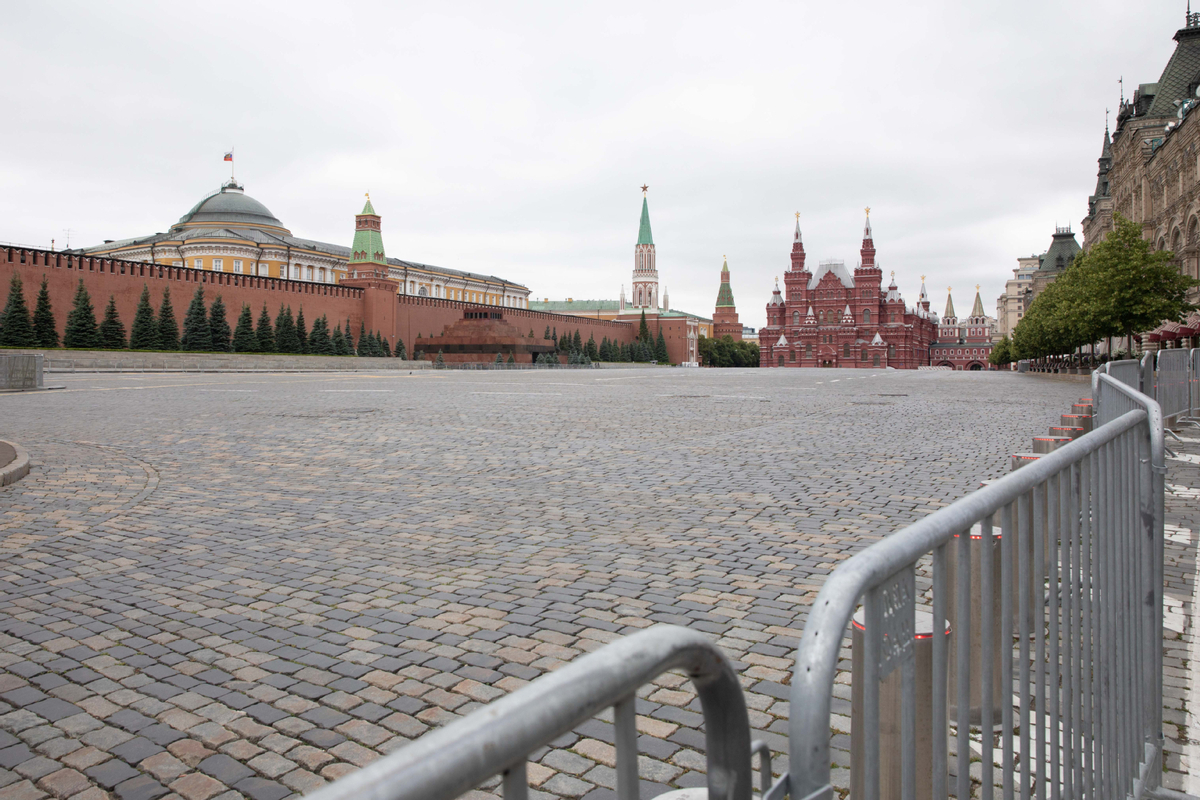
MOSCOW -- Moscow and Yevgeny Prigozhin, head of the Wagner private military group, reached a compromise through the mediation of Belarusian President Alexander Lukashenko late Saturday,according to RIA Novosti news agency reports.
Prigozhin has accepted Lukashenko's proposal to stop the advance of the Wagner troops and de-escalate the situation, the reports said.
On Saturday morning, Putin informed his Belarusian counterpart of the situation in Russia regarding the Wagner group and the heads of state agreed on joint actions.
"The president of Belarus held talks with Yevgeny Prigozhin ... They came to an agreement on the inadmissibility of unleashing a bloody massacre on the Russian territory," the press service of the Belarusian president was quoted as saying.
Then the Wagner fighters left southern Russia's Rostov region and were headed to their field camps, according to Russia's TASS news agency.
The criminal case against Prigozhin will be dropped, and he will go to Belarus, Kremlin spokesman Dmitry Peskov told reporters on late Saturday, without specifying what exactly Prigozhin will do in the former Soviet republic.
Lukashenko has been personally acquainted with Prigozhin for about 20 years and "this was his personal proposal agreed with Putin, " Peskov said.
"There was a higher goal to avoid bloodshed, to avoid internal confrontation, to avoid clashes with unpredictable results. It was for the sake of these goals that Lukashenko's mediation efforts were made, and President Putin made the appropriate decision," the spokesman said.
According to the official, the guarantee that Prigozhin will be able to leave for Belarus was the word of the Russian president.
The incident with the Wagner group will not affect the course of Russia's special military operation in Ukraine, which will continue, he added.
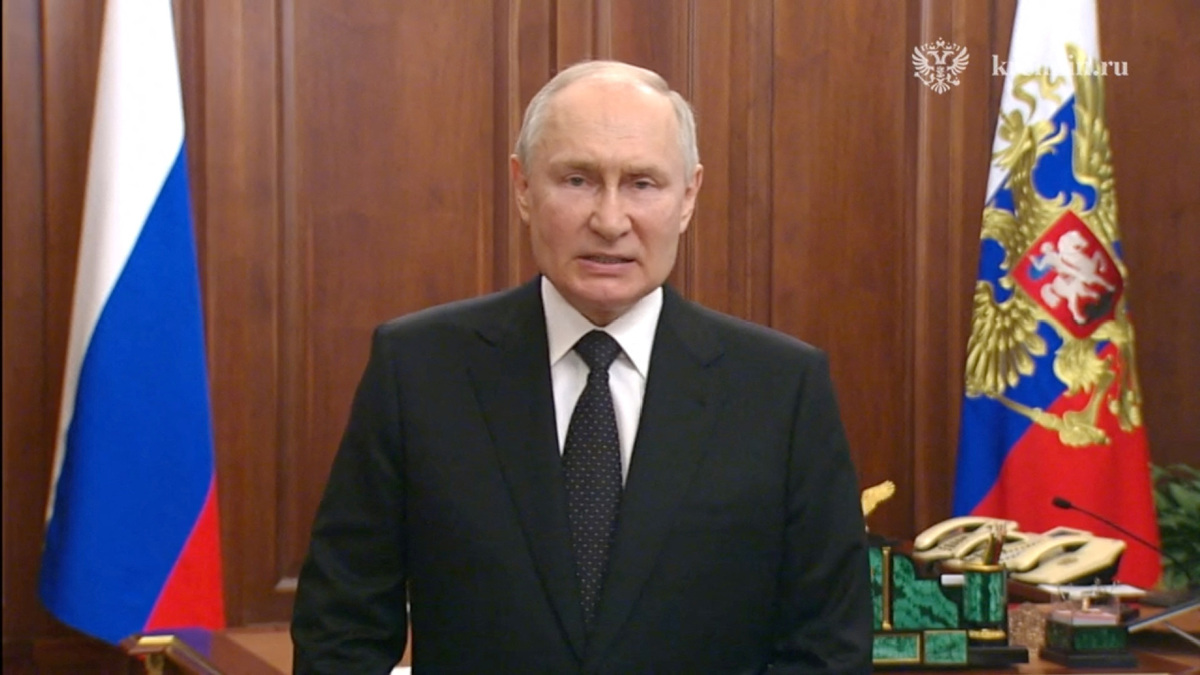
Russian President Vladimir Putin said in a national address on Saturday that an "armed mutiny" by the Wagner militia group was treason, and that anyone who had taken up arms against the Russian military would be punished.
"Those who organized and prepared a military mutiny, who took up arms against their comrades, betrayed Russia, and will be answered by us," Putin said, hours after Wagner chief Yevgeny Prigozhin was accused by the Kremlin of a mutiny coup.
In his emergency televised address, Putin urged the consolidation of all forces and said what was happening was "a betrayal" and "a knife stabbed in the back of our country and our people".
"What we are facing is precisely betrayal. Excessive ambition and vested interests have led to treason. Betrayal of one's country, one's people, and the cause for which the soldiers and commanders of the Wagner group had fought and died, side by side with our other units," he said.
Putin called Wagner's actions "internal treachery", saying that "all kinds of political adventurers and foreign forces, who divided the country and tore it apart, profited from their own interests. We will not let this happen again. We will protect both our people and our statehood from any threats, including internal treachery".
Putin said the situation in the southern city of Rostov-on-Don was complicated during the armed mutiny, adding that a counterterrorism mission is now in place in Moscow and several other regions.

Prigozhin said in an earlier video that he is in Rostov-on-Don, in southern Russia close to Ukraine's border, and that his forces have control of military facilities and the airfield there. He threatened to blockade Rostov and move on to Moscow if Russia's Defense Minister Sergei Shoigu and top generals did not meet with him in the city, where Russia's Southern Military District is headquartered.
The Wagner group later said it had taken control of Russian military facilities in the city of Voronezh, in southwestern Russia.
Sergey Surovikin, Russia's Deputy Commander of Russian joint forces in the special military operation area, called on the Wagner to comply with Putin's order and to resolve all issues peacefully.

Surovikin added that he arrived from the frontline under order of the Defense Ministry board on Saturday.
The Federal Security Service, Russia's domestic intelligence service, said Prigozhin's statements and actions effectively constitute calls for an armed civil conflict on Russian territory and a stab in the back of Russian servicemen fighting with Ukrainian forces.
A criminal case into calls for rebellion of Prigozhin has been opened amid the seriousness of situation and a threat of escalation of confrontation in Russia, the Federal Security Service's Public Relations Center said.
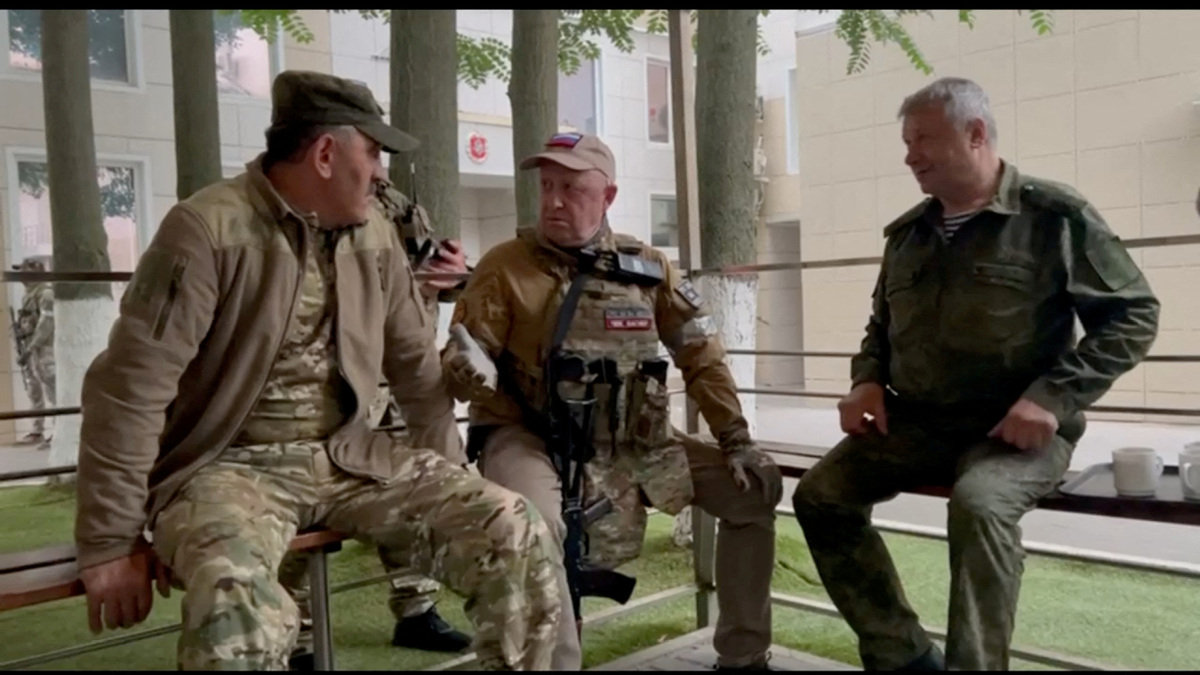
MOSCOW -- Russia's Defense Ministry on Saturday urged Wagner fighters to surrender after the private military group was accused of attempting to launch an armed rebellion.
"We ask you to be prudent and get in touch with representatives of the Russian Defense Ministry or law enforcement agencies as soon as possible. We guarantee everyone's safety," the ministry said in a statement.
A criminal case is initiated against Yevgeny Prigozhin, head of Wagner private military group, for incitement to armed insurrection, said the Public Relations Center of the Russian Federal Security Service on Saturday.
The appeal came after several audio recordings were posted on Prigozhin's Telegram channel. In these recordings, Prigozhin claimed that his units had allegedly come under attack, accusing Russia's military leadership of orchestrating the strikes, according to Russia's TASS news agency.
As a result of these developments, security measures have been significantly reinforced in Moscow. Vital facilities, state institutions, and transportation infrastructure have been placed under heightened protection, with police and response units on high alert, a TASS news agency report said.
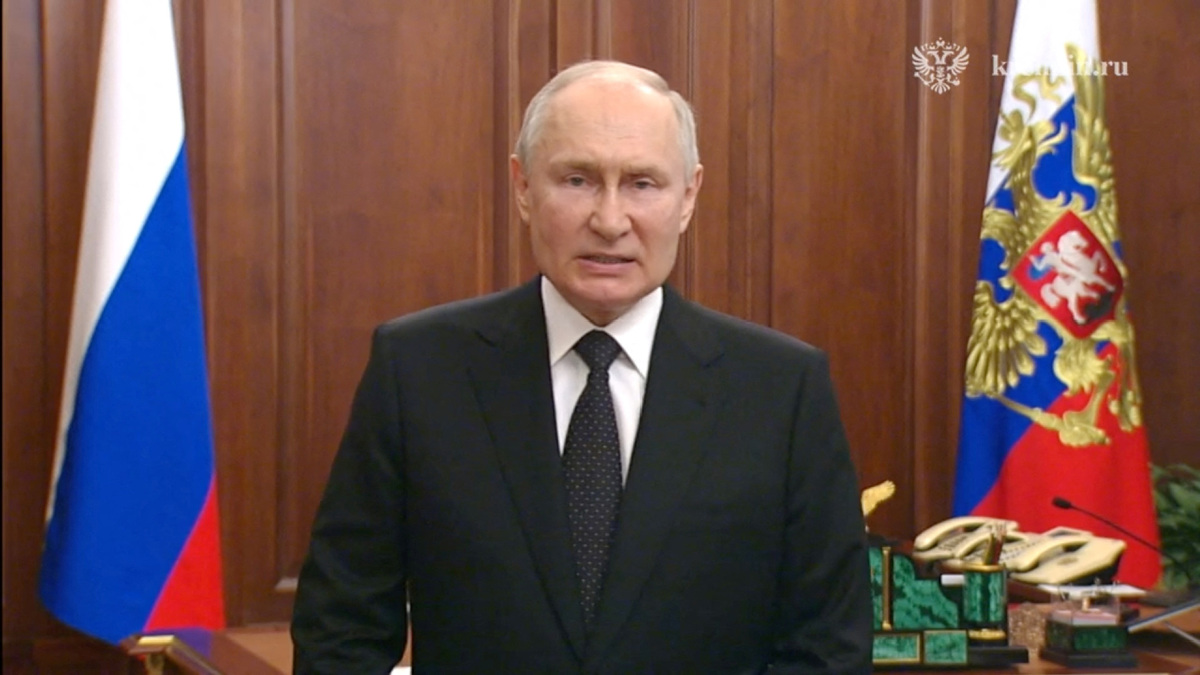
MOSCOW -- Russian President Vladimir Putin on Saturday ordered the Russian Armed Forces to neutralize those who organized the armed rebellion of the Wagner private military group.
"Any internal turmoil is a deadly threat to our statehood, to us as a nation. This is a blow to Russia, to our people. And our actions to protect the motherland from such a threat will be tough," Putin said in a televised address to the nation.
"All those who deliberately embarked on the path of betrayal, who prepared an armed rebellion, who embarked on the path of blackmail and terrorist methods, will suffer inevitable punishment and answer both before the law and before our people," he said.
"I urge those who are being dragged into this crime not to make a fatal and tragic mistake, but to make the only right choice -- to stop participating in criminal acts," Putin said.
Russia's National Anti-terrorism Committee announced on Saturday that a counter-terrorist operation regime has been introduced in Moscow city, the Moscow region and the Voronezh region to prevent possible terrorist acts, after the Wagner private military group was accused of trying to organize an armed rebellion.

MOSCOW -- Russia's National Anti-terrorism Committee announced on Saturday that a counter-terrorist operation regime has been introduced in Moscow city, the Moscow region and the Voronezh region to prevent possible terrorist acts, after the Wagner private military group was accused of trying to organize an armed rebellion.
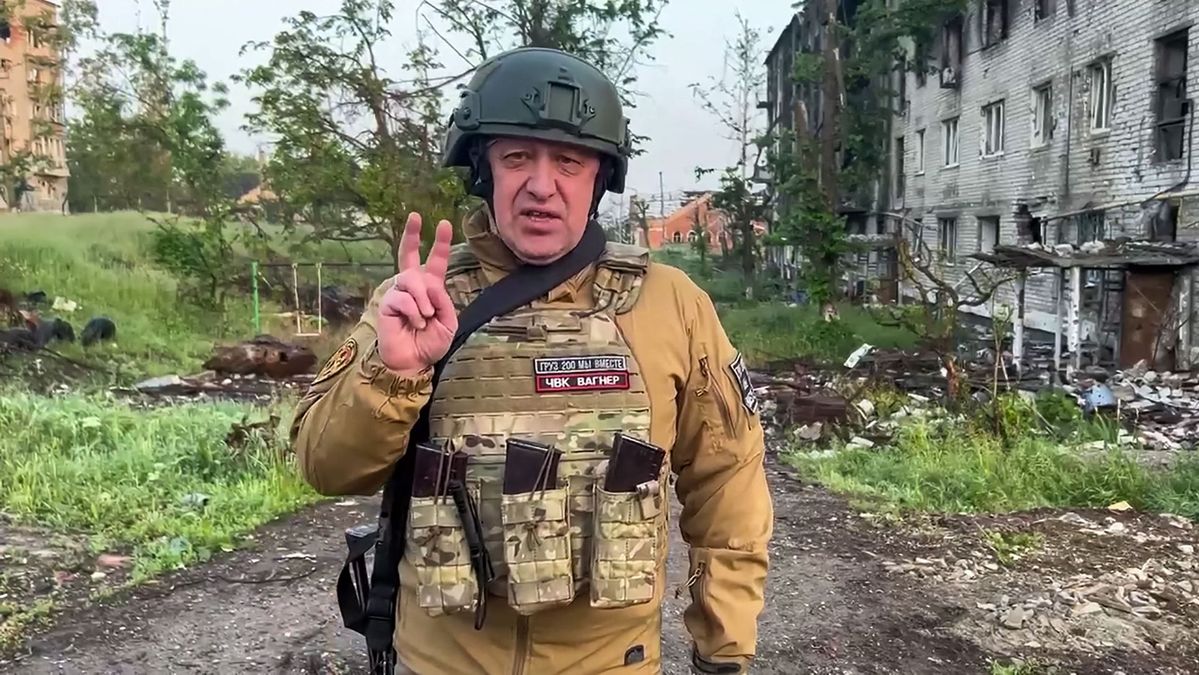
Russia's FSB security service has opened a criminal case against Yevgeny Prigozhin, head of Russia's Wagner private military group, for calling for armed mutiny, Russian media reported on Friday, citing the National Antiterrorism Committee.
Prigozhin on Friday accused the Russian military of "destroying" his fighters, without fully explaining his accusation, and vowed to stop what he called the "evil" of the military leadership.
The Russian Defense Ministry has denied reports circulating on social media that the Russian Armed Forces carried out strikes on Wagner encampments and urged Wagner fighters to "stop the columns" and return to their deployment points.
Security has been stepped up around Moscow and in the city of Rostov near southeast Ukraine, Russian state media reported early on Saturday.
Russian Prosecutor-General Igor Krasnov has informed President Vladimir Putin about the criminal case against Prigozhin, TASS news agency reported citing Kremlin spokesman Dmitry Peskov. It added that senior Russian officials from the FSB as well as the defense and interior ministries are reporting to Putin on measures they are taking in response to the call for mutiny.

Suspect detained for St. Petersburg blast while Kremlin accuses West of hypocrisy
MOSCOW — Russian authorities blamed Ukrainian intelligence agencies on Monday for orchestrating a bombing at a St. Petersburg cafe that killed a Russian military blogger and arrested a suspect accused of involvement in the attack.
Vladlen Tatarsky, whose real name was Maxim Fomin, had 560,000 followers on the messaging app Telegram. He was one of the most prominent of Russia's military bloggers, who supported Moscow's special military operation in Ukraine.
St. Petersburg's governor said that 32 people were wounded and 10 of them were in serious condition.
Russia's National Anti-Terrorist Committee, a state structure that coordinates counterterrorism, called the killing a terrorist attack, saying that the attack was "planned by Ukrainian special services" with the involvement of people who have cooperated with an anti-corruption foundation created by jailed Russian opposition leader Alexei Navalny. It noted that the arrested suspect was an "active supporter" of Navalny's group.
A spokeswoman for Navalny's foundation rejected the accusation.
Ukrainian authorities did not directly respond to the accusation, but President Volodymyr Zelensky said that he doesn't think about events in Russia.
Earlier on Monday, Russia's state Investigative Committee said that Darya Trepova, a suspect in the killing of the blogger, had been detained.
The suspect, a 26-year-old St. Petersburg resident, had been previously detained for taking part in anti-war rallies.
TASS news agency quoted an unnamed source as saying the bomb was hidden in a miniature statue that was handed to Tatarsky as he addressed a group of people in the cafe.
Mash, a Telegram channel with links to Russian law enforcement, posted a video that appeared to show Tatarsky, microphone in hand, being presented with the statuette of a helmeted soldier. It said the explosion happened minutes later.
The head of the Wagner paramilitary group, Yevgeny Prigozhin, said that the cafe previously belonged to him, but he has since given it to "patriotic" activists who have been holding meetings there, according to Reuters.
Russia's Foreign Ministry had earlier said silence in Western capitals exposed hypocrisy over expressions of concern for journalists.
Spokeswoman Maria Zakharova said the absence of reaction in Washington, London and Paris "speaks for itself given their ostensible concern for the well-being of journalists and freedom of expression".
Tatarsky's death followed the killing last August of Darya Dugina, the daughter of a prominent political thinker, in a car-bomb attack near Moscow.
Politicization criticized
In another development, Russian Foreign Minister Sergey Lavrov told US Secretary of State Antony Blinken on Sunday it was unacceptable for Washington to politicize the case of Wall Street Journal reporter Evan Gershkovich, who has been detained and accused of spying in Russia.
The Russian Foreign Ministry said Lavrov told Blinken in a phone call that Gershkovich's fate would be determined by a court.
"It was emphasized that it is unacceptable for officials in Washington and the Western media to whip up a stir with the clear intention of giving this case a political coloring."
On the battlefield, fighting around the eastern Ukrainian city of Bakhmut remained "particularly hot", Zelensky said, giving no indication the city had finally fallen to Russia as claimed by the founder of Wagner.
Agencies via Xinhua
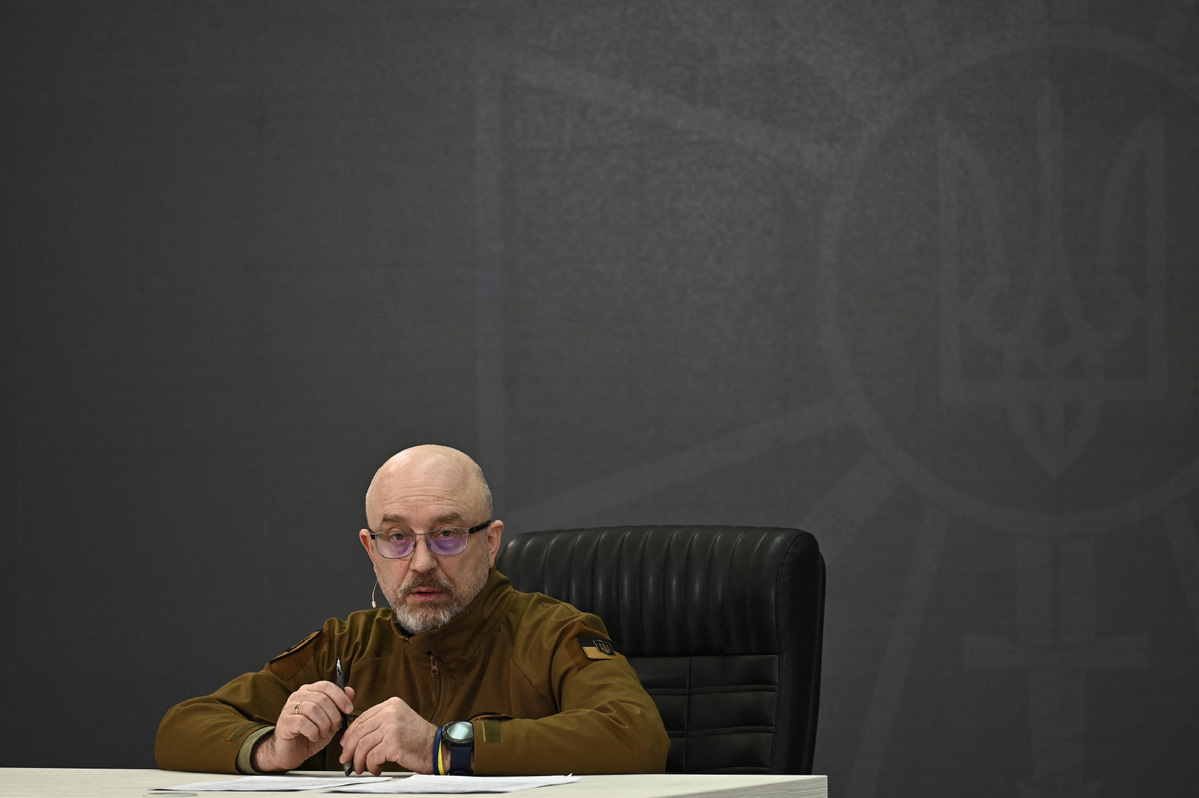
Ukrainian President Volodymyr Zelensky's party said on Sunday that it would move to replace its defense minister, as Russian forces close in on Bakhmut amid heavy fighting.
The fate of the minister, Oleksii Reznikov, has been the subject of increasing speculation amid a growing scandal about financial impropriety within the ministry and an accompanying government investigation into corruption.
David Arakhamia, chief of Zelensky's Servant of the People parliamentary bloc, said on Sunday that the Defense Ministry would be headed by Kyrylo Budanov, head of Ukraine's military intelligence.
Reznikov, he said, would become minister of strategic industries, tasked with strengthening military-industrial cooperation, after a day of speculation about the defense minister's future in Kyiv.
Reznikov has not been directly implicated in any wrongdoing, and Arakhamia did not link the move to concerns about the corruption scandal. Still, Reznikov would become the highest ranking official in Zelensky's cabinet to be reassigned in the nearly 12 months since Russia's special military operation began.
There was no immediate comment from Zelensky. Earlier on Sunday, Reznikov addressed reports that he might be replaced by saying that only one person, Zelensky, could decide if he stayed.
In an interview aired by Ukrainian television channel ICTV, he said Ukrainian officials will conduct a complete internal audit of procurement made by the armed forces.
The government has conducted a series of anti-corruption raids across the country since earlier last week, uncovering stashes of cash as well as luxury watches and cars.
Cash, watches and cars
Among those caught up in the investigations is the acting head of the Kyiv tax authority, who was allegedly part of a scheme to overlook 45 billion Ukrainian hryvnia ($1.2 billion) in unpaid taxes.
On Wednesday, Ukraine's State Bureau of Investigations said it had found hundreds of thousands of dollars in cash, as well as luxury watches and cars at the tax chief's residence.
The Security Service of Ukraine, or SBU, said the raids were part of an effort to combat what they described as "the internal enemy".
"Every criminal who has the audacity to harm Ukraine, especially in times of war, must clearly understand that we will handcuff his hands," Vasyl Maliuk, head of the SBU, said in a statement.
On the front line, the founder of the Wagner paramilitary group, Yevgeny Prigozhin, whose forces have helped lead Russia's campaign in Bakhmut, said Ukrainian troops were "fighting to the last", denying reports on social media that Kyiv's forces were withdrawing from the key city in the Donetsk region.
Russian Defense Ministry spokesman Igor Konashenkov said over 115 Ukrainian servicemen were killed in Donetsk in a day.
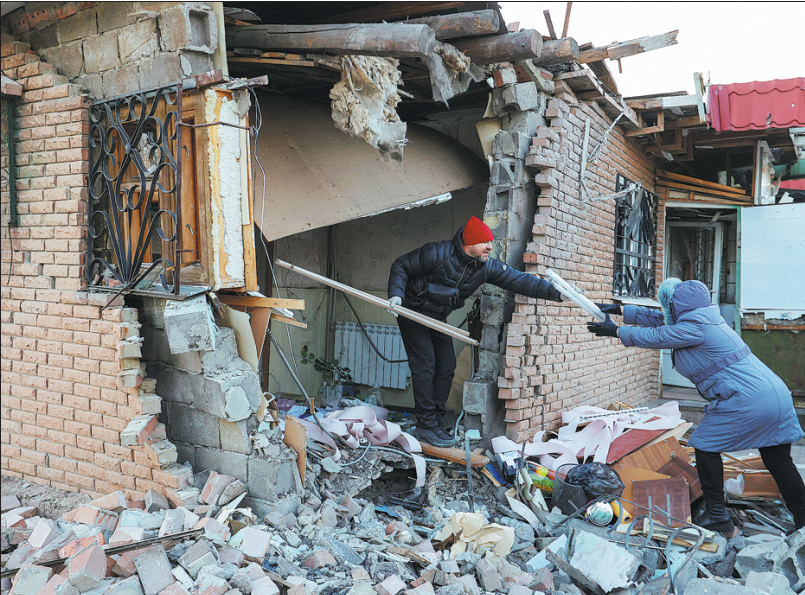
One of Russian President Vladimir Putin's closest aides said on Tuesday that Moscow was now fighting the US-led NATO military alliance in Ukraine and that the West was trying to wipe Russia from the political map of the world.
"The events in Ukraine are not a clash between Moscow and Kyiv — this is a military confrontation between Russia and NATO, and above all the United States and Britain," Russian Security Council Secretary Nikolai Patrushev told the Argumenty i Fakty newspaper.
"The Westerners' plans are to continue to pull Russia apart, and eventually just erase it from the political map of the world."
The US had sown chaos in Afghanistan, Vietnam and the Middle East, and has been trying for years to undermine Russia's "unique" culture and language, Patrushev said.
"There is no place for our country in the West," he said.
In response, he said Russia would achieve economic sovereignty and financial independence, while also building up its armed forces and special services to deter any potential aggressor.
When asked about Patrushev's remarks, Kremlin spokesman Dmitry Peskov said NATO and the US were part of the Ukraine conflict.
"They have de facto already become an indirect party to this conflict, pumping Ukraine with weapons, technologies, intelligence information and so on," Peskov told a regular news conference.
Oklahoma training
Russia's special military operation in Ukraine has triggered one of the deadliest European conflicts since World War II and the biggest confrontation between Moscow and the West since the 1962 Cuban Missile Crisis.
Meanwhile, about 100 Ukrainian troops will head to Oklahoma's Fort Sill as soon as next week to begin training on the Patriot missile defense system, getting Kyiv closer to obtaining the long-sought protection against Russia's missile attacks, The Associated Press reported.
The number of Ukrainians coming to Fort Sill is approximately the number it takes to operate one battery, and they will focus on learning to operate and also maintain the Patriot, Pentagon spokesman Air Force General Pat Ryder said on Tuesday.
The US pledged one Patriot battery in December as part of several large military assistance packages it has provided to Ukraine in recent weeks. Last week, Germany pledged an additional Patriot battery.
Each Patriot battery consists of a truck-mounted launching system with eight launchers that can hold up to four missile interceptors each, a ground radar, a control station and a generator. The army said it currently has 16 Patriot battalions.
On the battlefield, fighting for salt mining town Soledar raged in subzero temperatures on Wednesday as Russia's paramilitary group Wagner claimed it had taken control, with its fighters training their fire on a pocket of resistance in the town center.
Agencies contributed to this story.
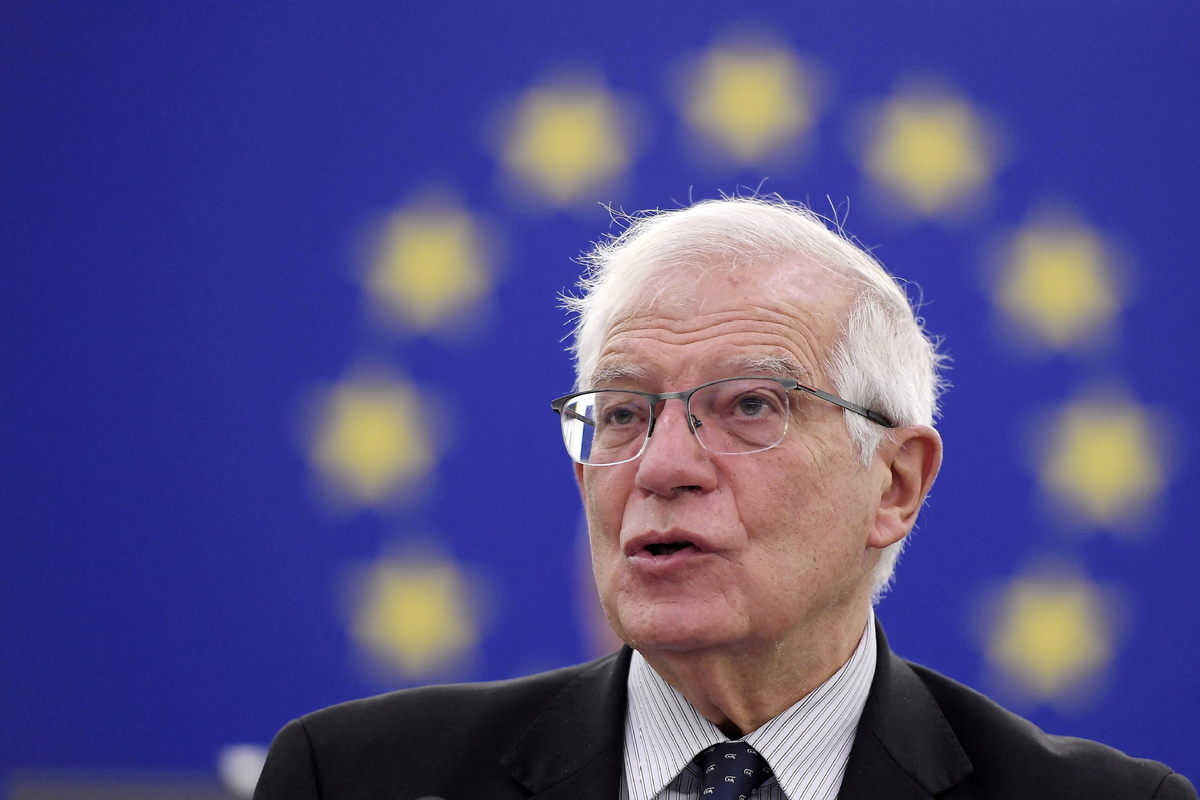
BRUSSELS - The European Union (EU) Monday adopted sanctions against the Russian paramilitary group Wagner, amid its concerns of the alleged Russian military build-up along the eastern Ukraine borders.
The sanctions will cover the Wagner group itself, three companies with links to the group and eight individuals, said the EU's High Representative for Foreign Affairs and Security Policy, Josep Borrell at a press conference following a meeting of the EU foreign ministers.
The listed individuals and entities will be subject to an asset freeze in the EU, and a travel ban to the EU. They will be prohibited from making funds available, either directly or indirectly, to those listed.
At Monday's press conference, Borrell reaffirmed that the bloc "stands united in support of Ukrainian sovereignty and territorial integrity," warning that any aggression by Russia against Ukraine would trigger economic sanctions that would come at a "high economic cost."
The latest measure was announced after the foreign ministers of the Group of Seven countries gathered in Liverpool from Dec 10 to 12.
During a phone call with Russian President Vladimir Putin on Monday, British Prime Minister Boris Johnson expressed concern over the alleged large-scale movement of Russian troops along the Ukrainian borders, the Kremlin said in a statement.
Putin gave Johnson specific examples of how authorities in Kiev undermined the implementation of the Minsk agreements, "which are an uncontested basis for resolving the internal crisis in Ukraine."
Putin underlined the need to immediately begin negotiations on clear and internationally legal agreements against the North Atlantic Treaty Organization's further eastward expansion and against the deployment of weapons in Russia's neighbors, primarily Ukraine.
